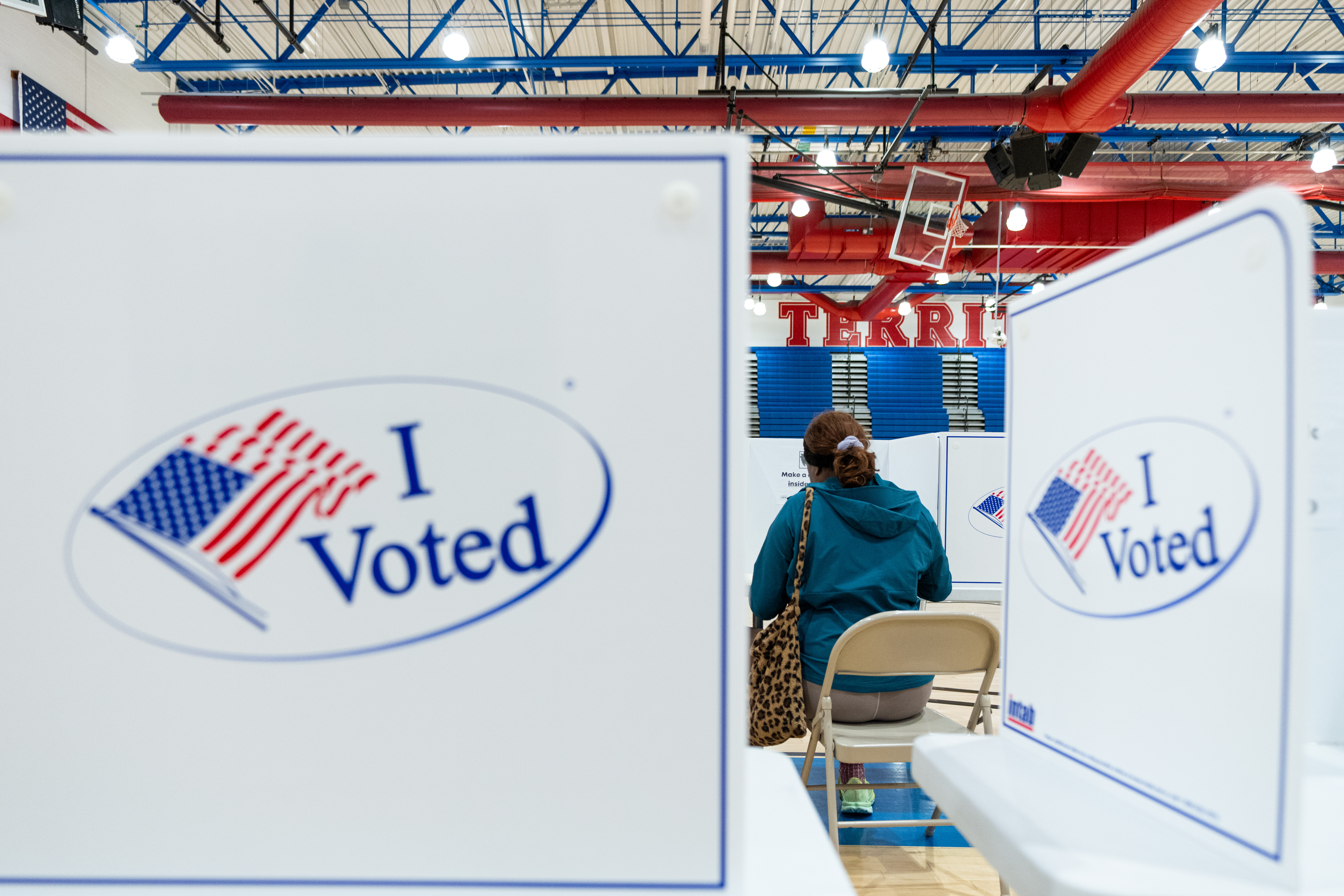
The House voted Wednesday to hold Attorney General Merrick Garland in contempt of Congress for refusing to turn over audio of President Joe Biden’s interview in his classified documents case, Republicans' latest and strongest rebuke of the Justice Department as partisan conflict over the rule of law animates the 2024 presidential campaign.
The 216-207 vote fell along party lines, with Republicans coalescing behind the contempt effort despite reservations among some of the party's more centrist members. Only one Republican — Rep. David Joyce of Ohio — voted against it.
Garland said in a statement late Wednesday, “It is deeply disappointing that this House of Representatives has turned a serious congressional authority into a partisan weapon. Today’s vote disregards the constitutional separation of powers, the Justice Department’s need to protect its investigations, and the substantial amount of information we have provided to the Committees."
He added, "I will always stand up for this Department, its employees, and its vital mission to defend our democracy.”
Garland is now the third attorney general to be held in contempt of Congress. Yet it is unlikely that the Justice Department — which Garland oversees — will prosecute him. The White House’s decision to exert executive privilege over the audio recording, shielding it from Congress, would make it exceedingly difficult to make a criminal case against Garland.
Nonetheless, Speaker Mike Johnson defended the decision to push ahead with what is now a mostly symbolic effort.
“Look, we did our job on the contempt, and I think it sends an important message,” the Louisiana Republican said following the vote. "We’ll see what happens next, but, I mean, the House has to do its work and I’m pleased with the outcome today.”
U.S. & World
The White House and congressional Democrats have slammed Republicans’ motives for pursuing contempt and dismissed their efforts to obtain the audio as purely political. They also pointed out that Rep. Jim Jordan, the GOP chair of the House Judiciary Committee, defied his own congressional subpoena last session.
“This contempt resolution will do very little, other than smear the reputation of Merrick Garland, who will remain a good and decent public servant no matter what Republicans say about him today," New York Rep. Jerry Nadler, the top Democrat on Judiciary Committee, said during floor debate.
Get a weekly recap of the latest San Francisco Bay Area housing news. Sign up for NBC Bay Area’s Housing Deconstructed newsletter.
Garland has defended the Justice Department, saying officials have gone to extraordinary lengths to provide information to the committees about Special Counsel Robert Hur’s classified documents investigation, including a transcript of Biden’s interview with him.
“There have been a series of unprecedented and frankly unfounded attacks on the Justice Department,” Garland said in a press conference last month. “This request, this effort to use contempt as a method of obtaining our sensitive law enforcement files is just most recent.”
Republicans were incensed when Hur declined to prosecute Biden over his handling of classified documents and quickly opened an investigation. GOP lawmakers — led by Jordan and Rep. James Comer — sent a subpoena for audio of Hur’s interviews with Biden during the spring. But the Justice Department only turned over some of the records, leaving out audio of the interview with the president.
On the last day to comply with the Republicans' subpoena for the audio, the White House blocked the release by invoking executive privilege. It said that Republicans in Congress only wanted the recordings “to chop them up” and use them for political purposes.
Executive privilege gives presidents the right to keep information from the courts, Congress and the public to protect the confidentiality of decision-making, though it can be challenged in court.
Administrations of both political parties have long held the position that officials who assert a president’s claim of executive privilege can’t be prosecuted for contempt of Congress, a Justice Department official told Republicans last month.
Assistant Attorney General Carlos Felipe Uriarte cited a committee’s decision in 2008 to back down from a contempt effort after President George W. Bush asserted executive privilege to keep Congress from getting records involving Vice President Dick Cheney.
Before Garland, the last attorney general held in contempt was Bill Barr in 2019. That was when the Democratically controlled House voted to issue a referral against Barr after he refused to turn over documents related to a special counsel investigation into Trump.
Years before that, then-Attorney General Eric Holder was held in contempt related to the gun-running operation known as Operation Fast and Furious. In each of those instances, the Justice Department took no action against the attorney general.
The special counsel in Biden’s case, Hur, spent a year investigating the president’s improper retention of classified documents, from his time as a senator and as vice president. The result was a 345-page report that questioned Biden’s age and mental competence but recommended no criminal charges for the 81-year-old. Hur said he found insufficient evidence to successfully prosecute a case in court.
In March, Hur stood by his no-prosecution assessment in testimony before the Judiciary Committee, where he was grilled for more than four hours by both Democratic and Republican lawmakers.
His defense did not satisfy Republicans, who insist that there is a politically motivated double standard at the Justice Department, which is prosecuting former President Donald Trump over his retention of classified documents at his Florida club after he left the White House.
But there are major differences between the two probes. Biden’s team returned the documents after they were discovered, and the president cooperated with the investigation by voluntarily sitting for an interview and consenting to searches of his homes.
Trump, by contrast, is accused of enlisting the help of aides and lawyers to conceal the documents from the government and of seeking to have potentially incriminating evidence destroyed.



